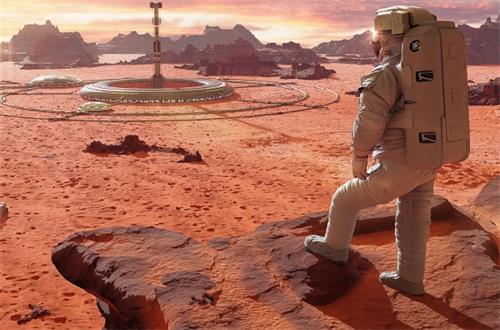
Mars is considered a prime candidate for space colonization not only due to its similarities to Earth but also because of its potential to support human survival. However, colonizing Mars presents numerous challenges.
Similarities Between Mars and Earth
Mars is regarded as a suitable destination for space colonization because it shares several key characteristics with Earth. Its rotational period is about 24 hours and 37 minutes, closely matching Earth’s 24-hour day.Additionally, Mars has an orbital period of 687 Earth days, roughly equivalent to two Earth years, leading to seasonal changes similar to those on Earth.
In terms of geological features, Mars and Earth have many similarities. Both planets have surfaces primarily composed of silicate rocks, and Mars’ soil and rock formations contain essential minerals that could potentially support life.
Environmental Conditions on Mars
Despite these similarities, Mars has a significantly different environment compared to Earth. However, scientists are exploring ways to extract oxygen from Mars’ carbon dioxide-rich atmosphere and convert it into breathable air and fuel through technological advancements.
Mars’ climate is extreme. During the daytime, surface temperatures can reach around 21°C (70°F), but at night and in polar regions, they can drop as low as -100°C (-148°F). Nevertheless, Mars contains water ice, particularly in its polar ice caps, offering a potential resource for sustaining future human life. Additionally, evidence suggests that liquid water may have once existed on the Martian surface, further fueling curiosity about whether life ever existed there.
Challenges of Colonizing Mars
One major obstacle is the vast distance between the two planets. With current space technology, the fastest possible journey to Mars would take around 39 days, but under most conditions, a mission would require several months or longer. This poses considerable challenges for human survival and resource replenishment during the journey.
Additionally, Mars’ gravity is only one-third of Earth’s. While this lower gravity would allow humans to lift heavy objects easily and jump more efficiently, prolonged exposure could have negative effects, such as bone density loss and muscle atrophy. Furthermore, Mars lacks a strong magnetic field and a thick atmosphere like Earth’s, making it highly exposed to space radiation, which poses serious health risks to humans.
Conclusion
Mars is considered a prime candidate for space colonization due to its many Earth-like features.However, its harsh environmental conditions and the immense technical challenges involved make human settlement a daunting task. Despite these difficulties, scientists believe that continuous technological advancements and exploration efforts could eventually turn the dream of colonizing Mars into reality.

Gibran,Mary
Love and Dreams: The Interwoven Fates of Gibran and Mary
Gibran, an outstanding poet, painter, and writer of the 20th century, lived a life filled with romantic literary and artistic creations.

Chess Programs
How Do Chess Programs Defeat Top Grandmasters?
Chess, a widely loved intellectual game, has a history spanning over 400 years.

Maya Civilization
Six Pieces of Evidence for the Mysterious Disappearance of the Maya Civilization
The Maya civilization remains one of the most mysterious and astonishing civilizations in Earth's history. The Maya made remarkable achievements in astronomy, mathematics, architecture, and medicine.


